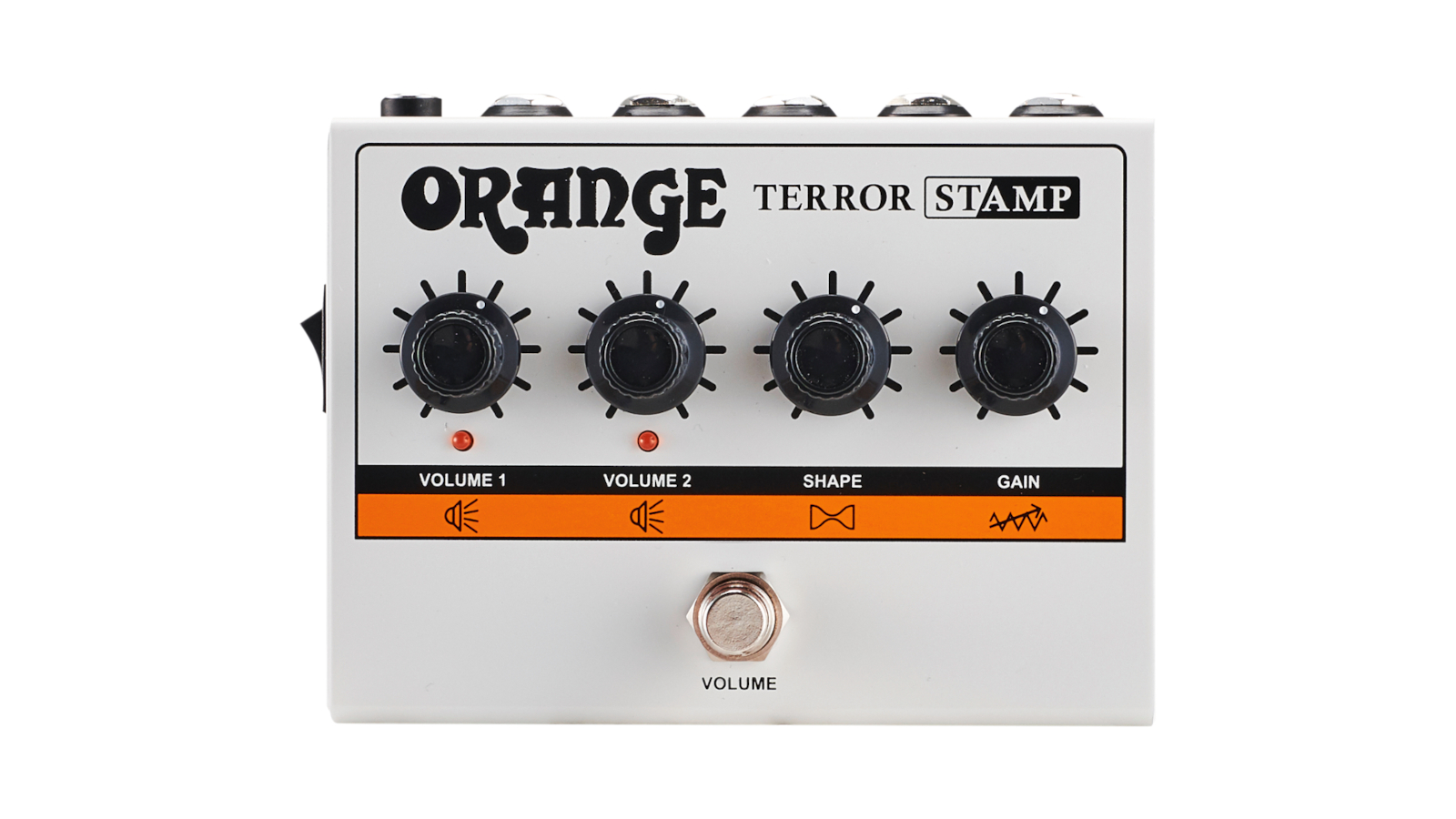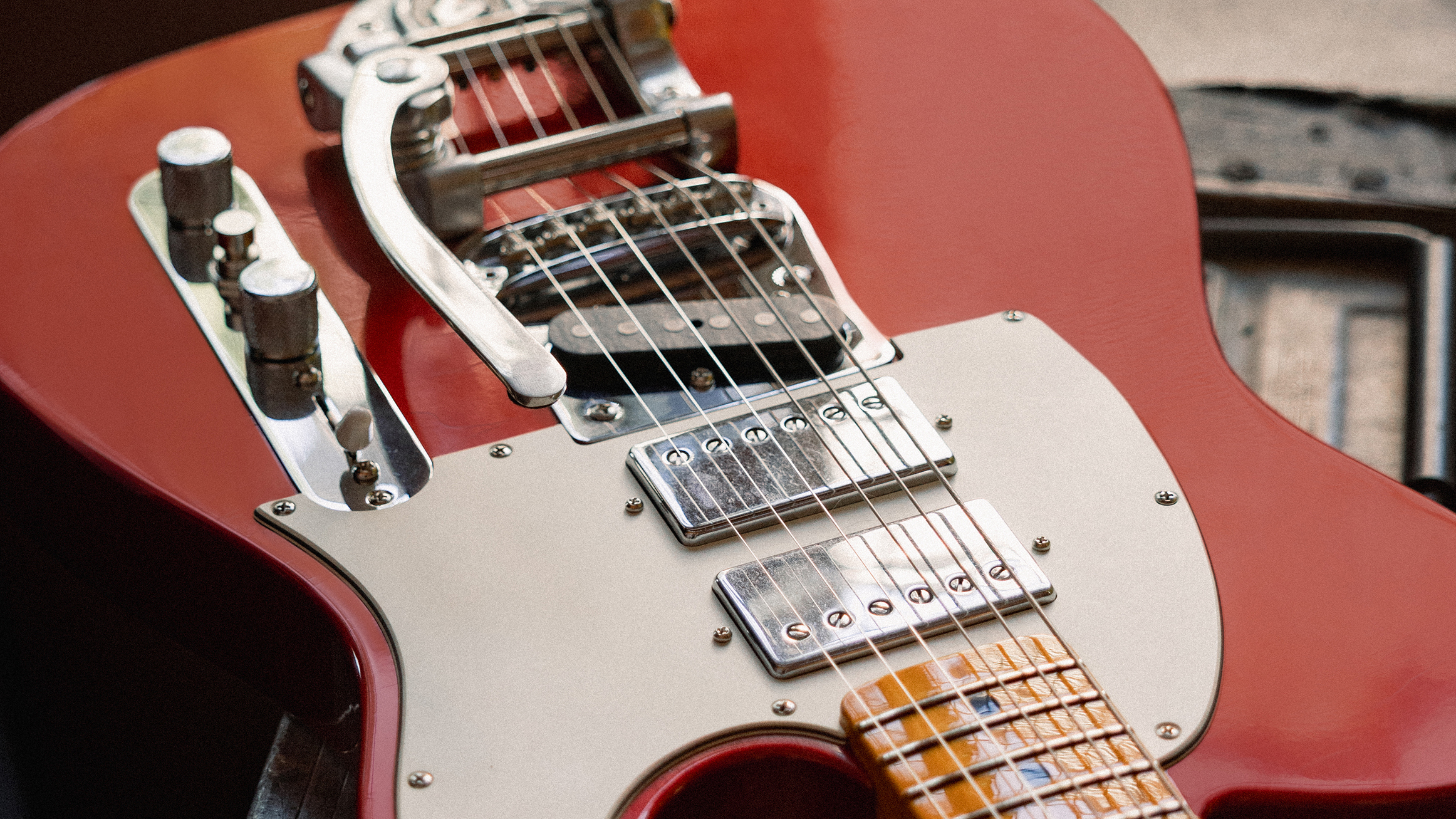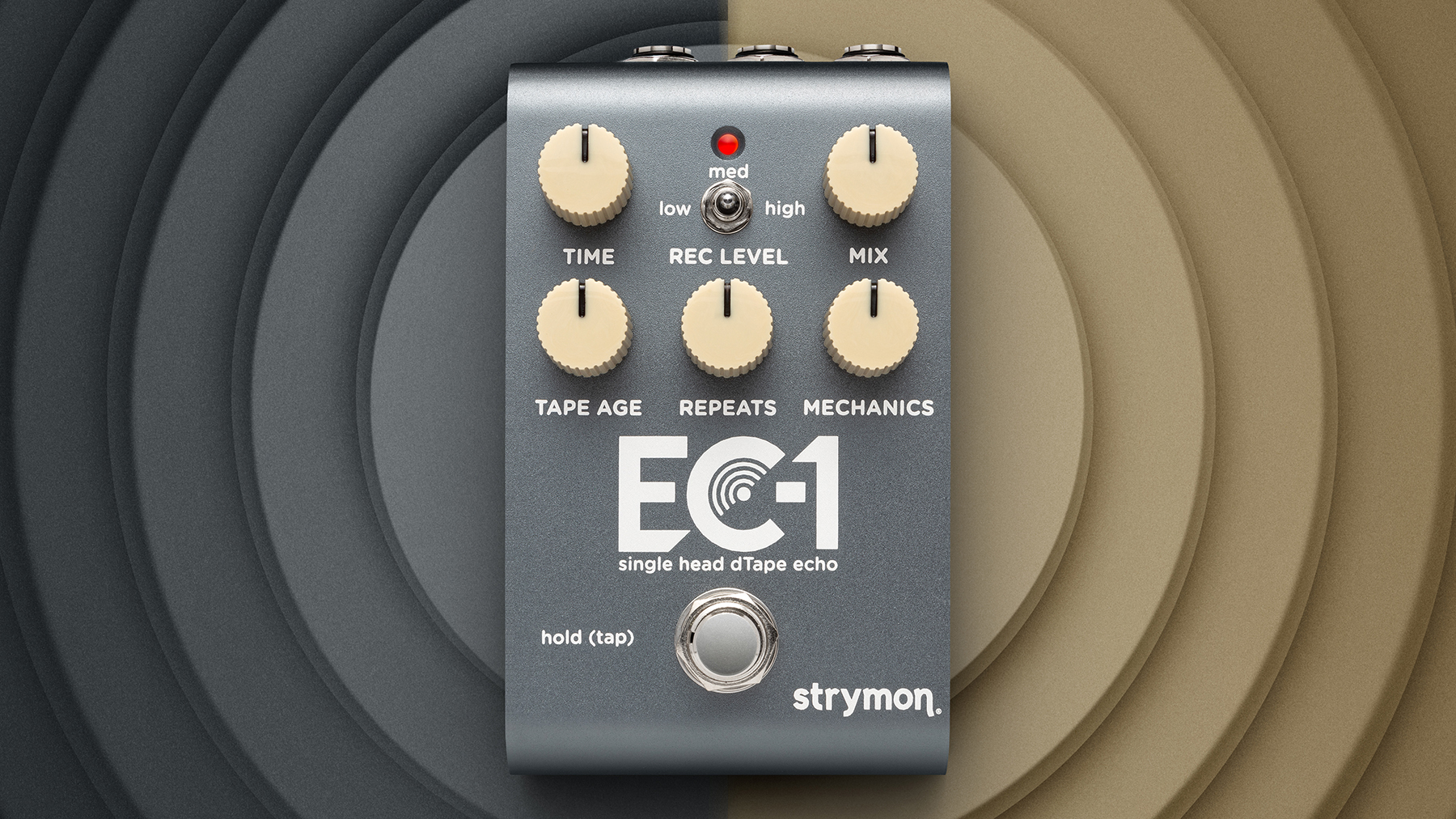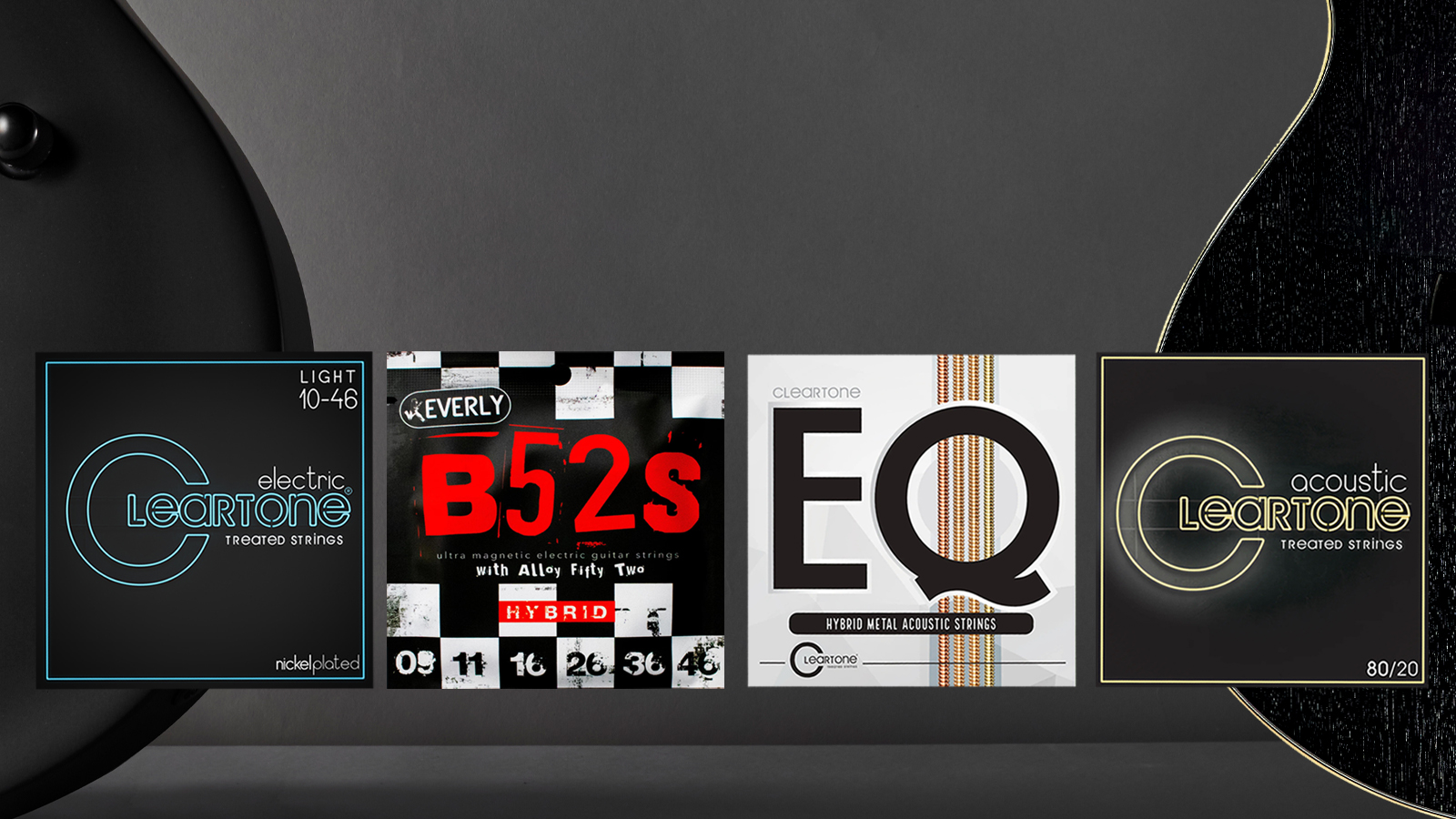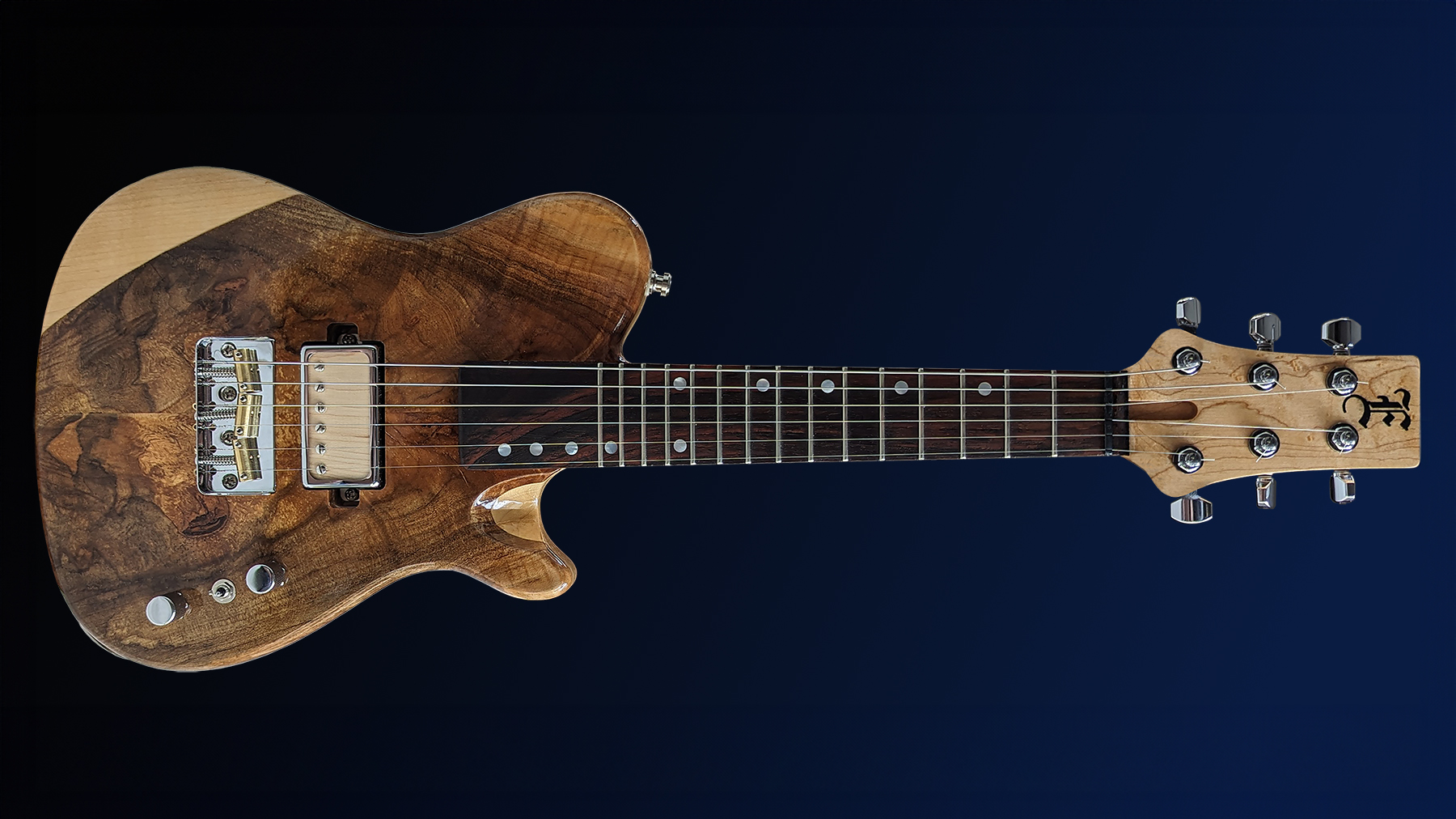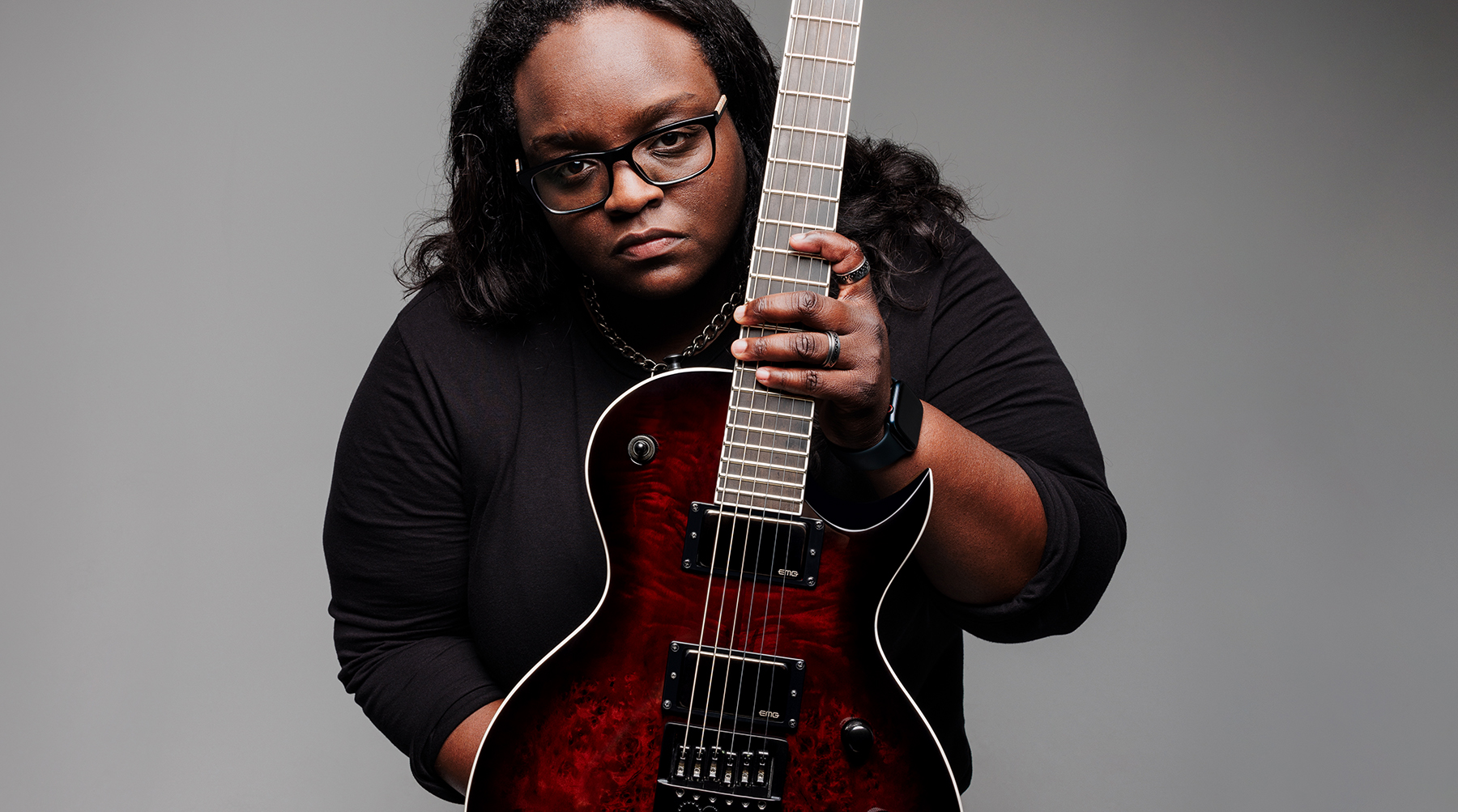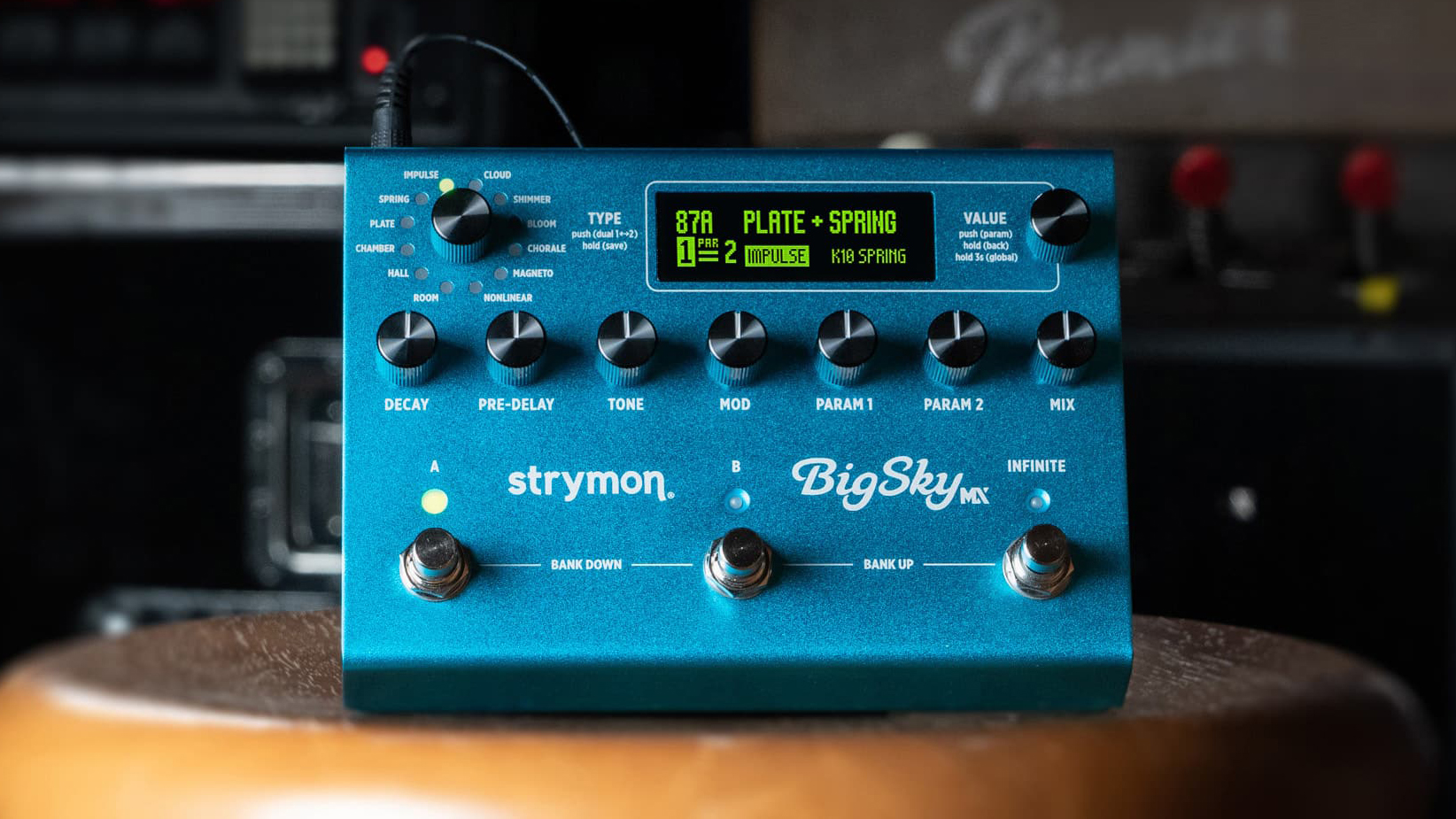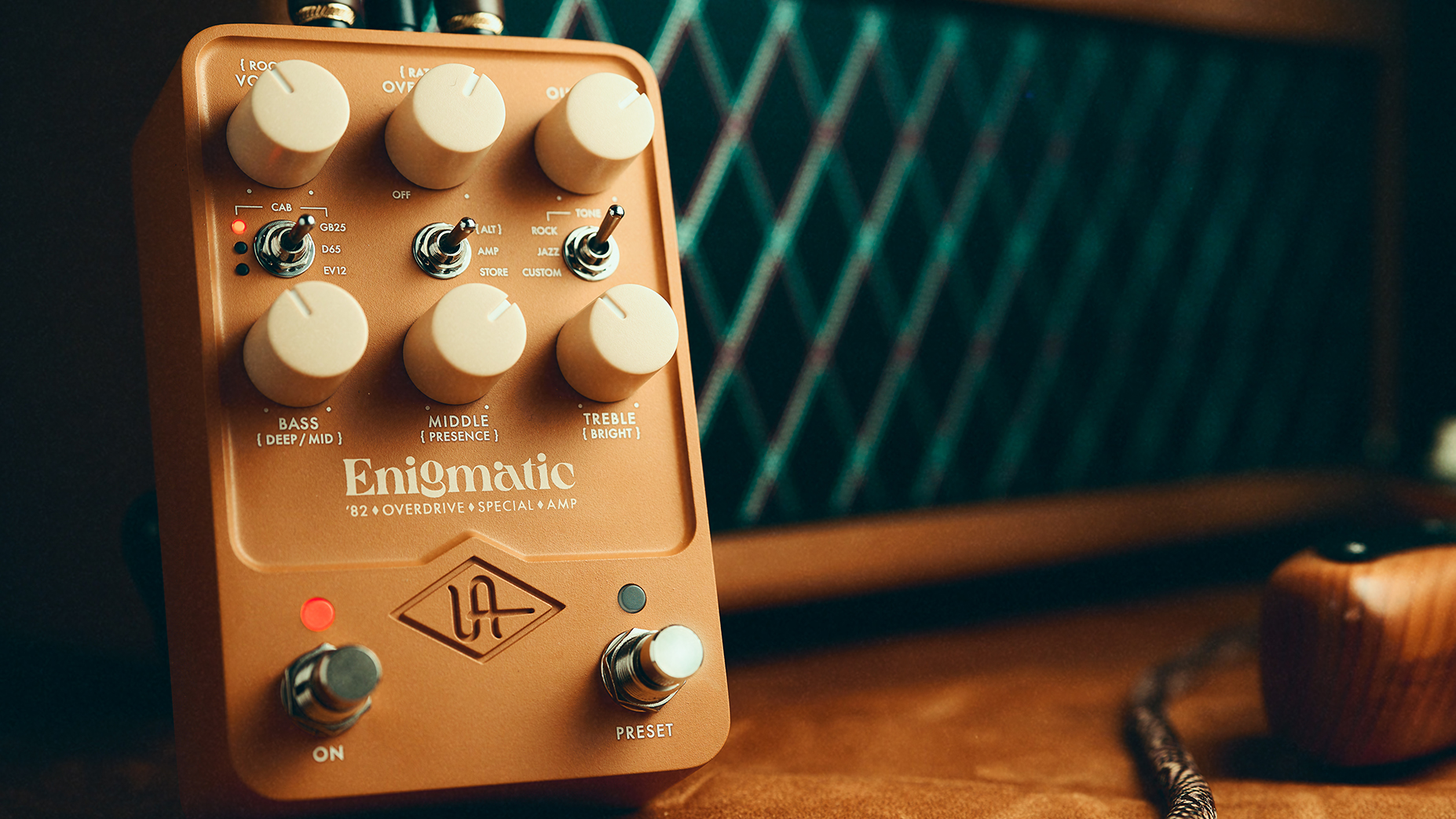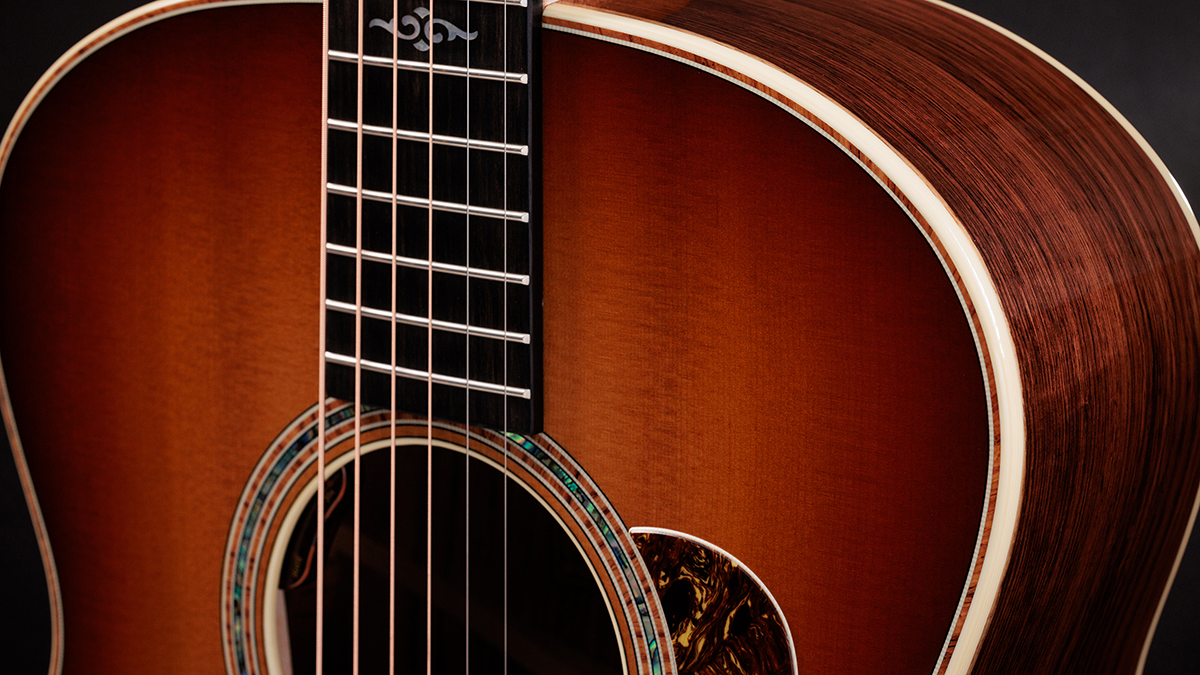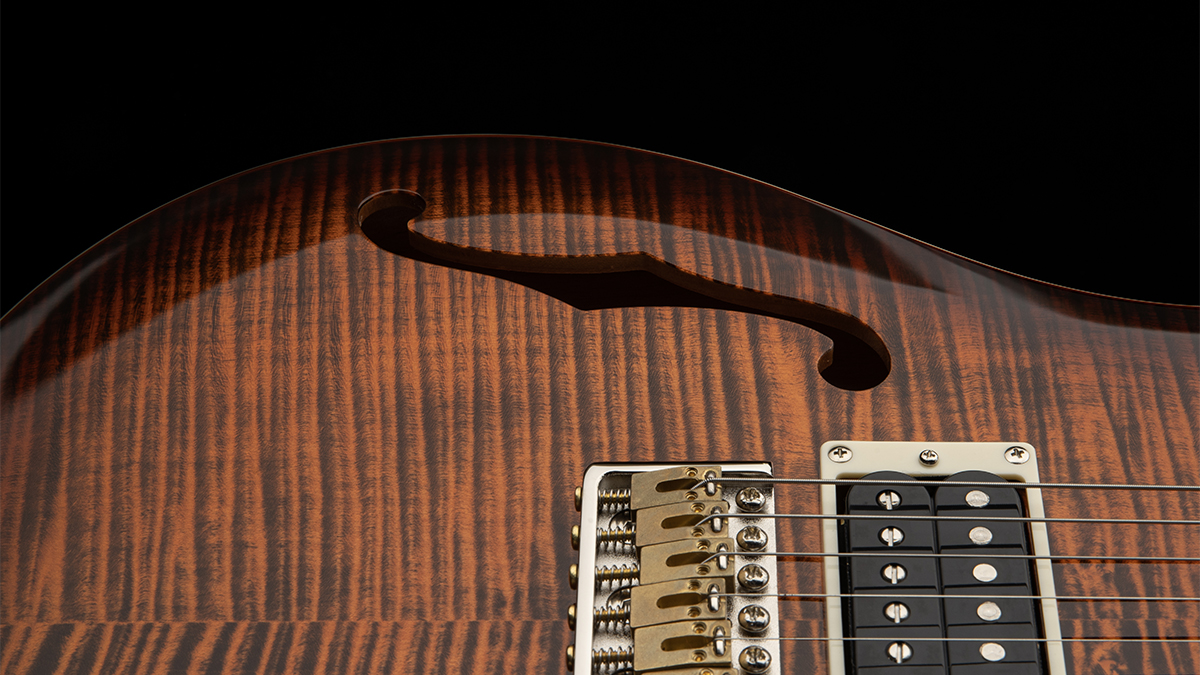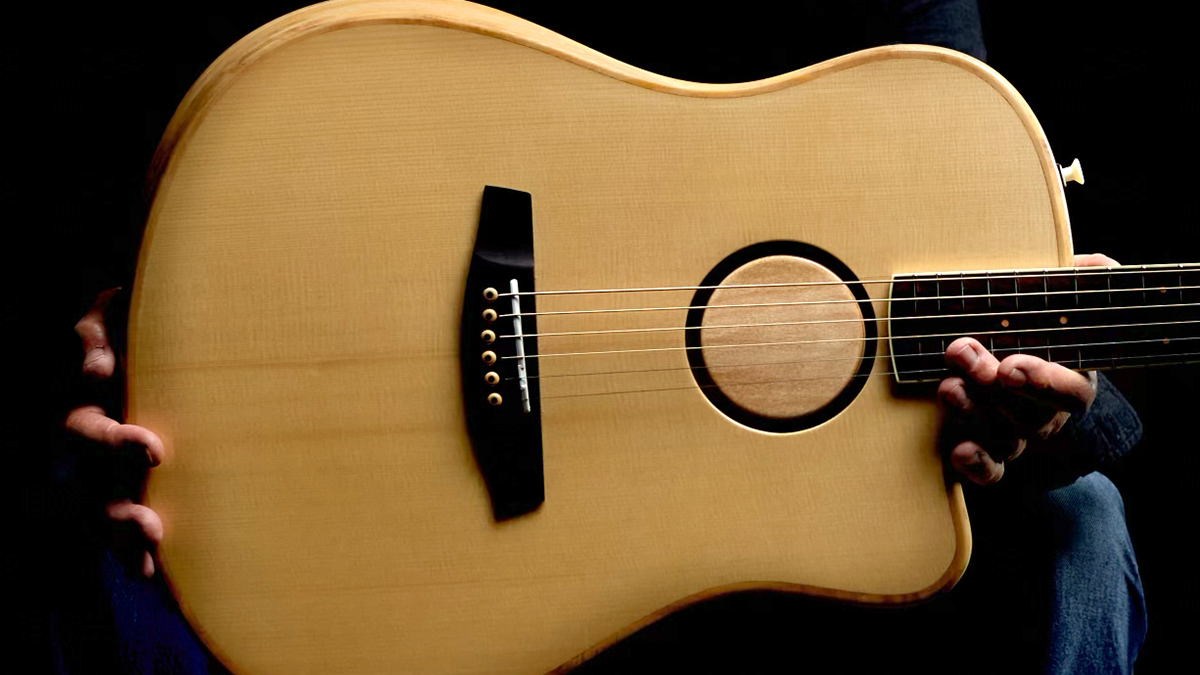GuitarPlayer Verdict
This amp sounds great and delivers enough volume for gigs, and its multiple outputs let you easily configure it into a grab-and-go pedalboard rig.
Pros
- +
Tube amp tone and feel
- +
Two presettable volumes
- +
Flexible I/O
Cons
- -
None
You can trust Guitar Player.
The Latest in Orange’s line of Micro Terror amps is the stomp-box-sized Terror Stamp, a hybrid design that features a tube preamp and a class AB solid-state power amp that can pump 20 watts into your eight- or 16-ohm speaker of choice.
The compact steel enclosure measures just 2.4 by 5.4 by 3.9 inches, making the Terror Stamp convenient to stick on a pedalboard, and it has dual master-volume controls, a gain control and a shape knob. The front panel has 1/4-inch jacks for input, send and return, headphone/cab-sim and speaker out, as well as a center-positive input for the included 15VDC power supply. It’s nice that the in-line adapter uses a standard IEC power cord, but if you lose the unit you’ll need to find one online that has a standard p1J connector. The enameled enclosure also has cooling vents and an on/ off switch on the left side.
- Our pick of the best pedal amps
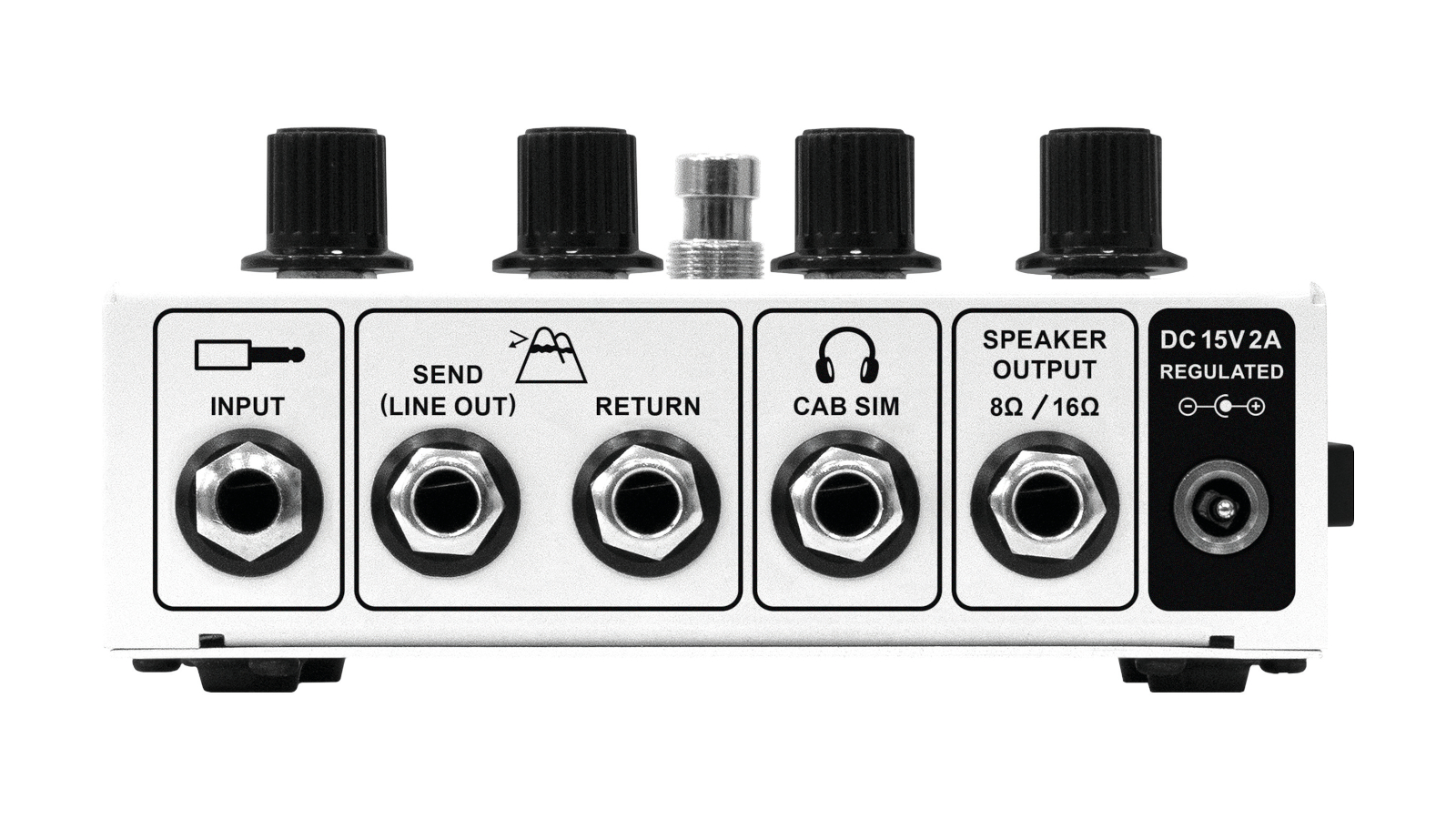
We tested the Terror Stamp with an Alessandro 1x12 (eight-ohm) open-back cabinet, and it performed well with a Fender Noventa Strat, a Gibson Historic ’59 Les Paul and a Reverend Gristlemaster.
The Stamp’s volume 1 and volume 2 controls have identical ranges, so you adjust the gain control for the amount of overdrive you want and then set the two volume knobs to facilitate foot-switching between different volume levels. In this way, setting volume 2 higher effectively gives you a boost when you kick it on.
The shape control affects the overall tone, providing a mids-forward sound when turned fully left and a scooped-mids response when cranked fully right. Putting it in the middle and dialing one way or the other made it easy to EQ for the different electric guitars.
The Terror Stamp can deliver everything from very clean tones to aggressive, British-style overdrive with gobs of sustain. It’s dynamically responsive to the electric guitar’s volume, can pump an impressive amount of air and doesn’t feel overly compressed when cranked up.
The Terror Stamp also works great with OD pedals injected into the front – which is the only way to switch between clean and distorted tones without having to readjust the gain control – and the effects loop is handy for delay, modulation and reverb pedals.
We used Universal Audio’s UAFX boxes for these effects, and they sounded excellent in the loop. The send jack also functions as a line out, and there’s a separate headphone/ cab-sim output designed to simulate a miked 4x12 for headphone practicing or running direct into a recording interface or the P.A.
Anyone looking to reduce the amount of gear they have to carry is a candidate for the Terror Stamp. It sounds great and delivers enough volume for gigs, and its multiple outputs let you easily configure it into a grab-and-go pedalboard rig.
Specifications
- CONTROLS Volume 1, volume 2, shape, gain
- FOOT SWITCHES Volume (selects between the two masters) I/O Input, send (line out) and return, headphones/cab-sim output, speaker output 8Ω/16Ω. Input for the included 15VDC/2A power supply
- EXTRAS Buffered FX loop. On/off power switch
- TUBES One 12AX7
- WEIGHT .84 lbs
- BUILT Korea
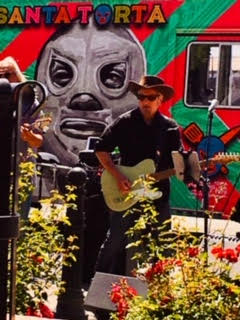
Art Thompson is Senior Editor of Guitar Player magazine. He has authored stories with numerous guitar greats including B.B. King, Prince and Scotty Moore and interviewed gear innovators such as Paul Reed Smith, Randall Smith and Gary Kramer. He also wrote the first book on vintage effects pedals, Stompbox. Art's busy performance schedule with three stylistically diverse groups provides ample opportunity to test-drive new guitars, amps and effects, many of which are featured in the pages of GP.
A gigantic $360 off Positive Grid's celebrated BIAS amp sim software may have just put the nail in the coffin of my beloved valve combo
"Let’s take acoustic-electric amplification to its ultimate realization." How to make an acoustic amp shimmer like a vintage Fender, smolder like a Dumble or scream like a Marshall
